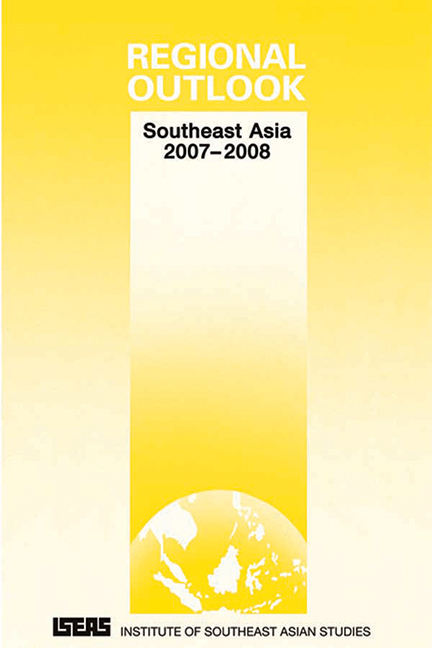Regional Economic Trends
from ECONOMIC OUTLOOK
Published online by Cambridge University Press: 21 October 2015
Summary
Southeast Asian economies have weathered recent challenges in the global economic environment well, partly helped by the strongest global economic growth in years. As the regional economies move into 2007, the global economic headwinds are increasing as the U.S. economy slows and as the risks of a disorderly unwinding of global imbalances increase. Fortunately, Southeast Asia appears to also have some positive internal factors that can help mitigate risks emanating from the global environment.
Global Environment Likely to Be Less Supportive of Regional Growth Prospects
There are several reasons to believe that global demand for Southeast Asian exports will decelerate as we move into 2007. First, there are clear signs of a global economic slowdown. The latest OECD (Organization for Economic Cooperation and Development) lead indicators point to slower growth in at least the early part of 2007 in almost all the major developed economies. Although there is no strong consensus on just how much the U.S. economy will slow down, it is quite clear that the U.S. housing boom is ending in a way that will hurt U.S. growth: the risks are clearly to the downside in the United States whereas growth in Europe and Japan will probably decelerate by less. A crucial variable here is global demand for electronic components since this is the single most important export for most Southeast Asian economies: available lead indicators point to only a manageable moderation in demand, not a significant fall.
REGIONAL ECONOMIC TRENDS
• Prospects for Southeast Asian economies are positive in 2007 despite some risks to global demand.
• Slower U.S. growth, the lagged impact of tighter monetary conditions globally and the risks posed by unresolved global imbalances are concerns.
• Nevertheless, Southeast Asia is in a far stronger position now than it has been for a long time: Japan's recovery is a help as is the region's renewed attractiveness as a location for outsourced production of goods and services.
Second, the lagged impact of tighter monetary policies as well as of higher energy prices is still only just feeding through to global economic activity.
- Type
- Chapter
- Information
- Regional OutlookSoutheast Asia 2007-2008, pp. 63 - 78Publisher: ISEAS–Yusof Ishak InstitutePrint publication year: 2007

